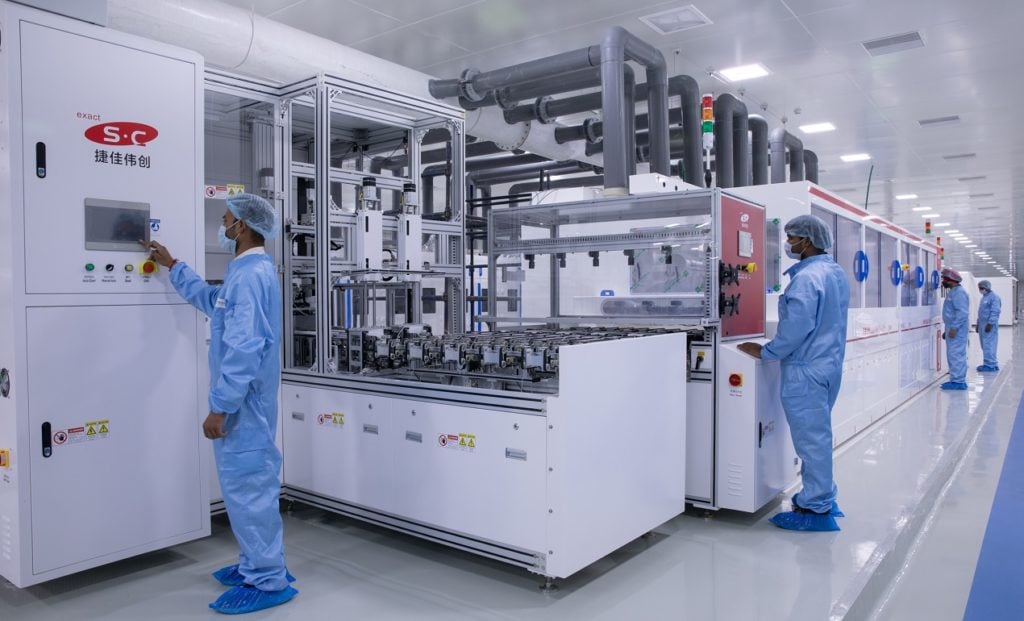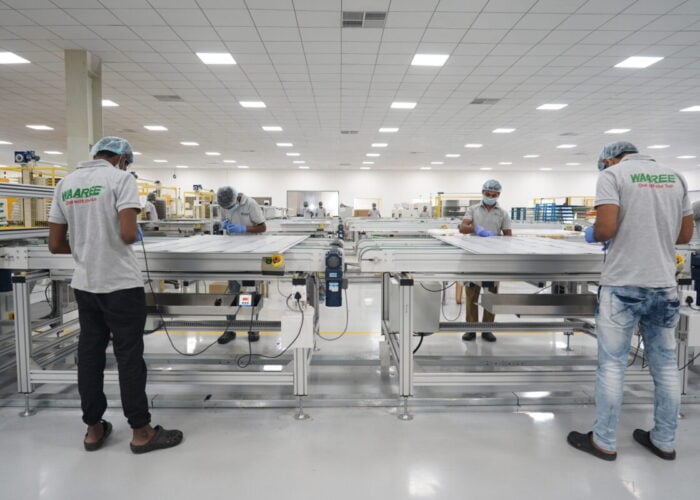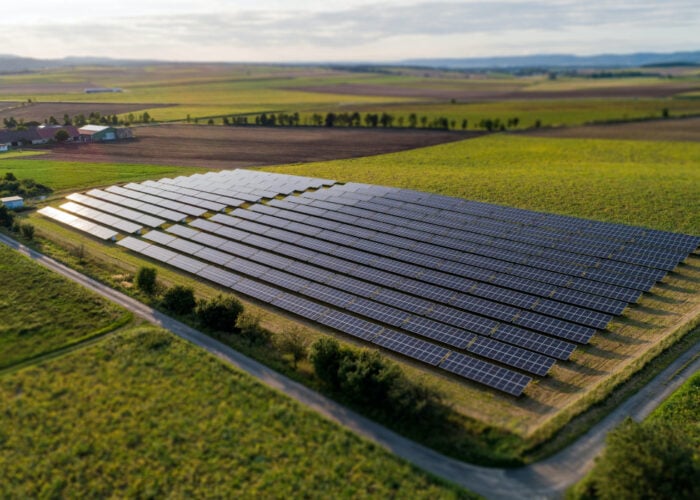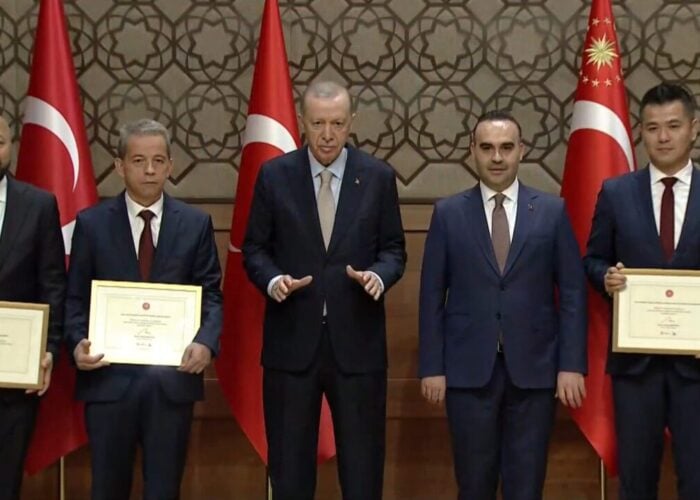
India’s Production Linked Incentive (PLI) scheme is expected to add up to 40GW of additional cell and module manufacturing capacity in the country as it operates in tandem with the country’s upcoming Basic Customs Duty (BCD), according to Indian rating agency ICRA, a Moody’s Investors Service company.
The PLI scheme was implemented in April last year by the Ministry of New and Renewable Energy (MNRE) and requires applicant manufacturers to set up a plant with a minimum capacity of 1GW. The maximum capacity that can be awarded to one recipient is 50% of their bid capacity or 2GW, whichever is less.
Unlock unlimited access for 12 whole months of distinctive global analysis
Photovoltaics International is now included.
- Regular insight and analysis of the industry’s biggest developments
- In-depth interviews with the industry’s leading figures
- Unlimited digital access to the PV Tech Power journal catalogue
- Unlimited digital access to the Photovoltaics International journal catalogue
- Access to more than 1,000 technical papers
- Discounts on Solar Media’s portfolio of events, in-person and virtual
Or continue reading this article for free
It was recently awarded an extra US$2.6 billion in funding following high demand from manufacturers and ICRA said this, coupled with the impact of the BCD, was “expected to support the setting up of additional cell and module manufacturing capacity of up to 40GW.”
In April, the Indian government will start imposing duties of 40% on solar modules and 25% on solar cells from outside the country. It is hoped that taxing the import of modules from abroad, particularly China which currently supplies about 80% of India’s demand, would spur the development of a domestic manufacturing base that can support the country’s downstream sector.
The BCD rate was recently confirmed in the country’s budget, which was described as a “gamechanger” for domestic manufacturing, although The National Solar Energy Federation of India (NSEFI), which represents companies from across the PV value chain, has written to the Indian central government raising concerns about the BCD, urging it to grandfather the duty for some projects or risk 10GW of deployment.
The ICRA, however said the BCD was a “positive for domestic solar manufacturers as it is expected to improve the competitiveness of domestic cell/module manufacturers.”
“The extent of benefit would also depend on the imported PV module prices, especially from China. Based on the prevailing cell and module prices, the cost of modules from domestic original equipment manufacturers (OEMs) using imported cells is expected to be lower by 11 – 12 % post April 2022.”
Speaking to PV Tech Premium at the end of last year, Saon Ray, senior fellow at the Indian Council for Research on International Economic Relations (ICRIER), said there would be a period of about nine months from when the BCD is introduced where imports are expected to rise as developers seek to lock in supply before the country’s domestic manufacturing base rises to meet that demand.
“The domestic OEMs would remain dependent on imports for sourcing wafers and cells in the near term,” said ICRA. “As a result, the OEMs will remain exposed to volatility in cell prices. The development of integrated facilities would reduce dependence over the next 3 – 5 years.”
At the start of this year, Tata Power Renewables’ president Ashish Khanna told PV Tech Premium about the “huge potential” for solar manufacturing in India and PV Tech Premium has broken down the key mechanisms and avenues available to businesses looking to set up manufacturing facilities in India as well as laying out the instruments for investing in the country’s growing solar sector more broadly.
Modules produced by the PLI beneficiaries must have a minimum efficiency of 19.5% with temperature coefficient of Pmax better than -0.30%/°C, or an efficiency of 20% with temperature coefficient of Pmax equal to or better than -0.4%/°C.






